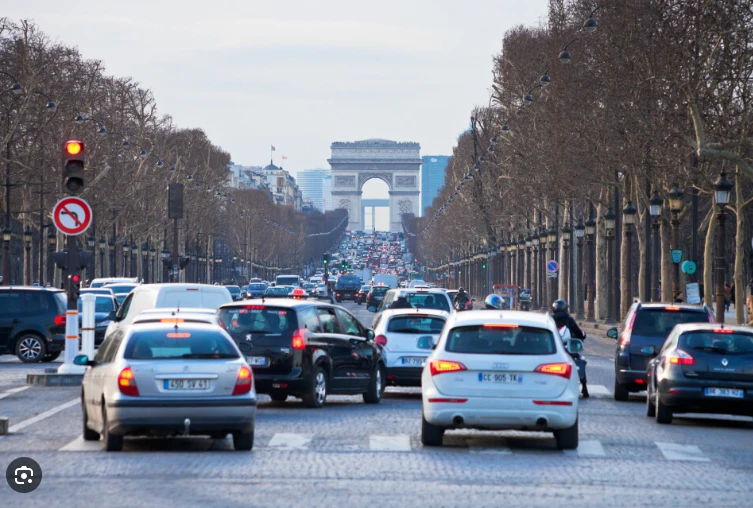The spectacular one-off stadiums that will host sport from July 26 are now nearing completion at tourist hotspots around the City of Light, including at the Eiffel Tower, Place de la Concorde and the Invalides.
But one of the downsides of building temporary facilities at the heart of the city -- a deliberate choice to lower costs and carbon emissions -- is the disruption to the daily lives of residents.
Several major thoroughfares have been closed off or restricted, while new cycle and Olympics VIP lanes are further squeezing traffic to a standstill in some areas of the capital.
"No kidding, I see a physical fight in my street almost every day between drivers," Julien Rivet, a lawyer who lives in the centre near the Louvre museum, told AFP.
He like many other Parisians he has decided to leave the capital with his family for the duration of Games, which run from July 26-August 11, followed by the Paralympics from August 28-September 8.
Others who earn their livings on Paris' roads, from courier cyclists and delivery drivers to taxi operators are also struggling.
"We can't work any more... it's a catastrophe," complained 52-year-old taxi driver Abdel as he stood in traffic near the Place de la Concorde, the venue for Olympics skateboarding, BMX freestyle and breakdancing that is usually a key roundabout.
'Constraints'
Organisers insist that Parisians will end up appreciating the Games once they start and that the pre-event grumbling is normal.
"I've been lucky enough to be involved in the Olympic Games in one way or another since 1982 and you always hear the same things," Etienne Thobois, director general of the Paris 2024 organising committee, told AFP on Tuesday.
"It's true that our concept of having a large number of temporary sites in the heart of the city, obviously with that, there are constraints, but I feel like people are seeing what we're doing," he added.
"Ultimately, tourist and cultural activities have not been disturbed," he added. "You definitely need to plan your journeys a bit and make sure you're informed, but life is carrying on, businesses are working, hotels are functioning."
Many tourists in the city seem curious about the work going on around them, while giant Olympic rings installed midway up the Eiffel Tower have become a new attraction.
"I see everywhere that they are fixing the buildings and preparing for these big games, so it should be nice," Iranian tourist Mohsen, 48, told AFP.
'Mistreatment'
Instead of the Olympics, attention in France remains focused on snap parliamentary elections called by President Emmanuel Macron on June 9.
Voters are set to go to the polls on Sunday for the first of two rounds ahead of the start of the Games.
Polls show the far-right National Rally in the lead, which could see them emerge as the biggest parliamentary group and possibly at the head of the government for the first time.
Anne Hidalgo sharpened her criticism of Macron on Wednesday, saying he had ruined the atmosphere.
"In an act of mistreatment of French people, the president is spoiling the party," Hidalgo told the Ouest France newspaper of Macron's decision to dissolve parliament on June 9.
The Olympics are "a coming-together of humanity through sport. Why undermine this beautiful moment with this election that was called in a hurry, without consulting anyone?" the Socialist mayor added.
Analysts and security sources have raised the risk of protests and even violence if the anti-immigration National Rally (RN) secures power on July 7 in what would be a seismic change for France.
Macron has called the election a moment of "clarification" and has warned about voting for the "extremes", both the RN and the new left-wing alliance that includes moderate Socialists and far-left Communists.
Polls show his centrist bloc trailing in third and facing major losses.
"My responsibility... is to do everything" so that the Games are "a moment of harmony, of celebration and not of violence," added Hidalgo, who ran against Macron in the last presidential election in 2022.


